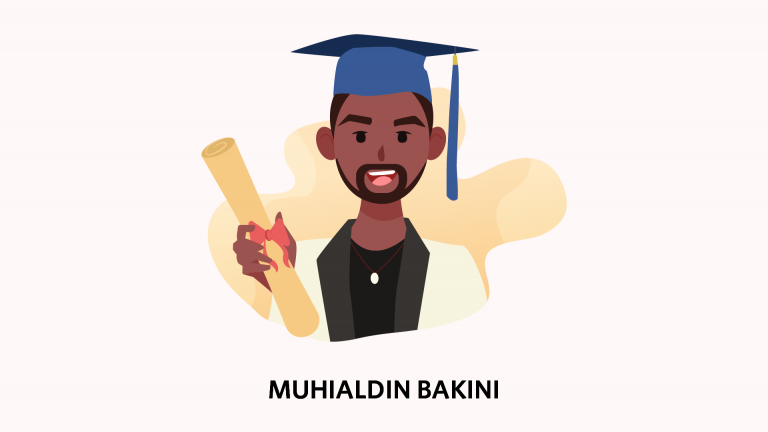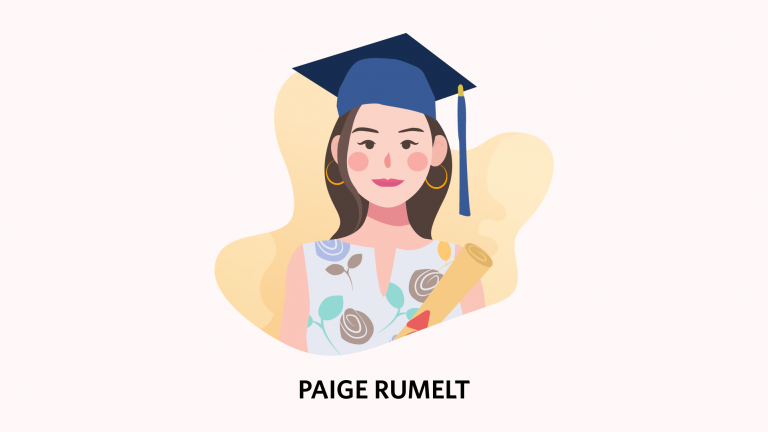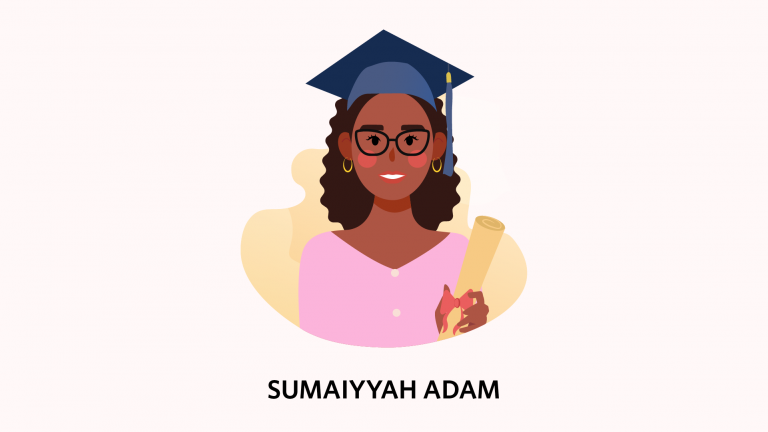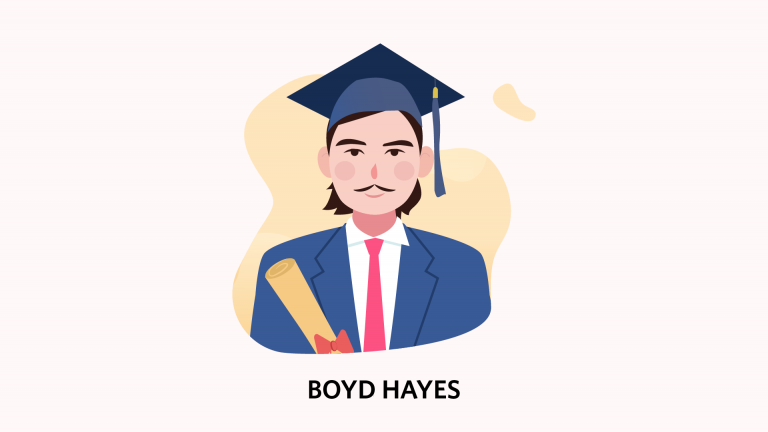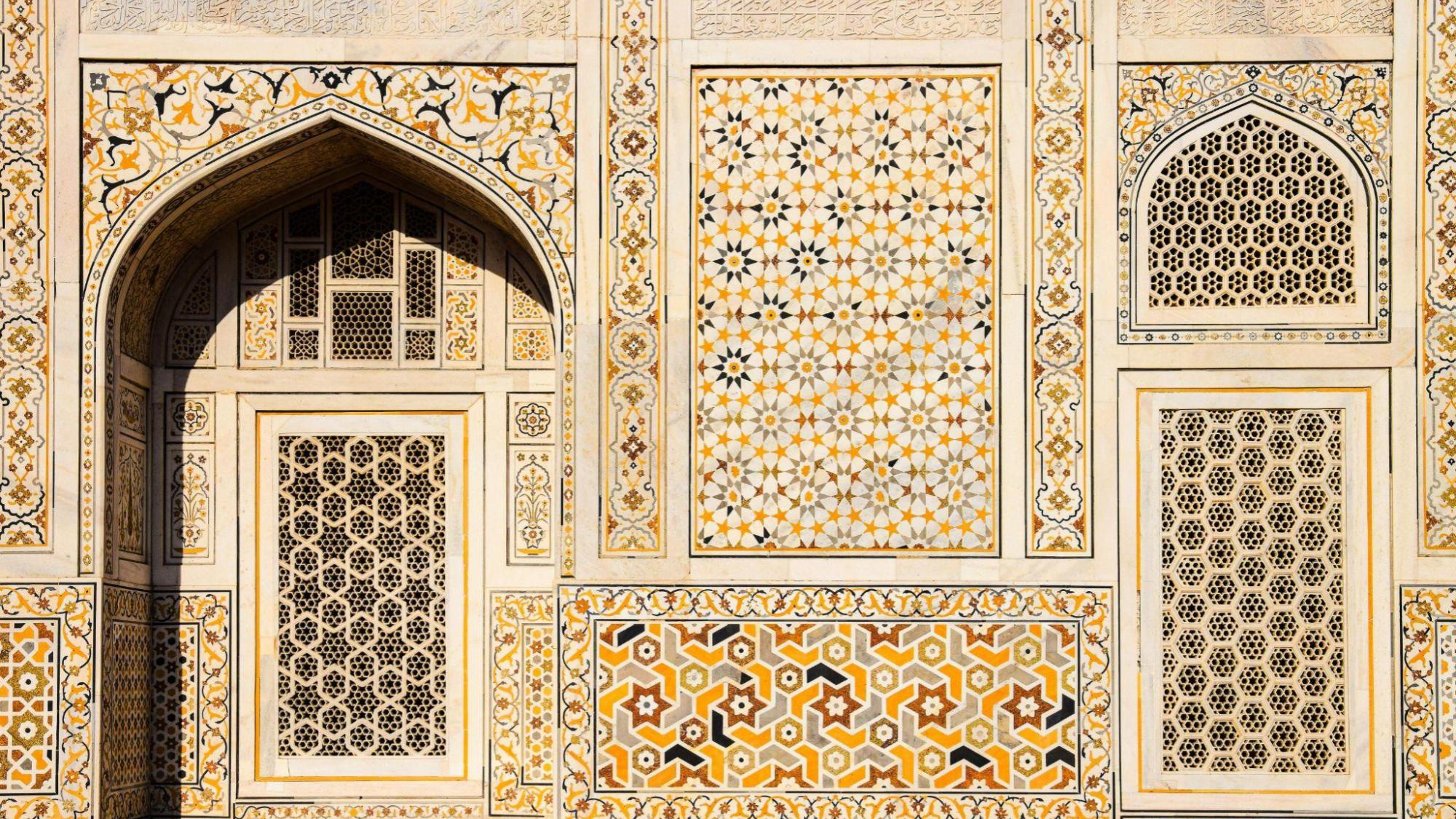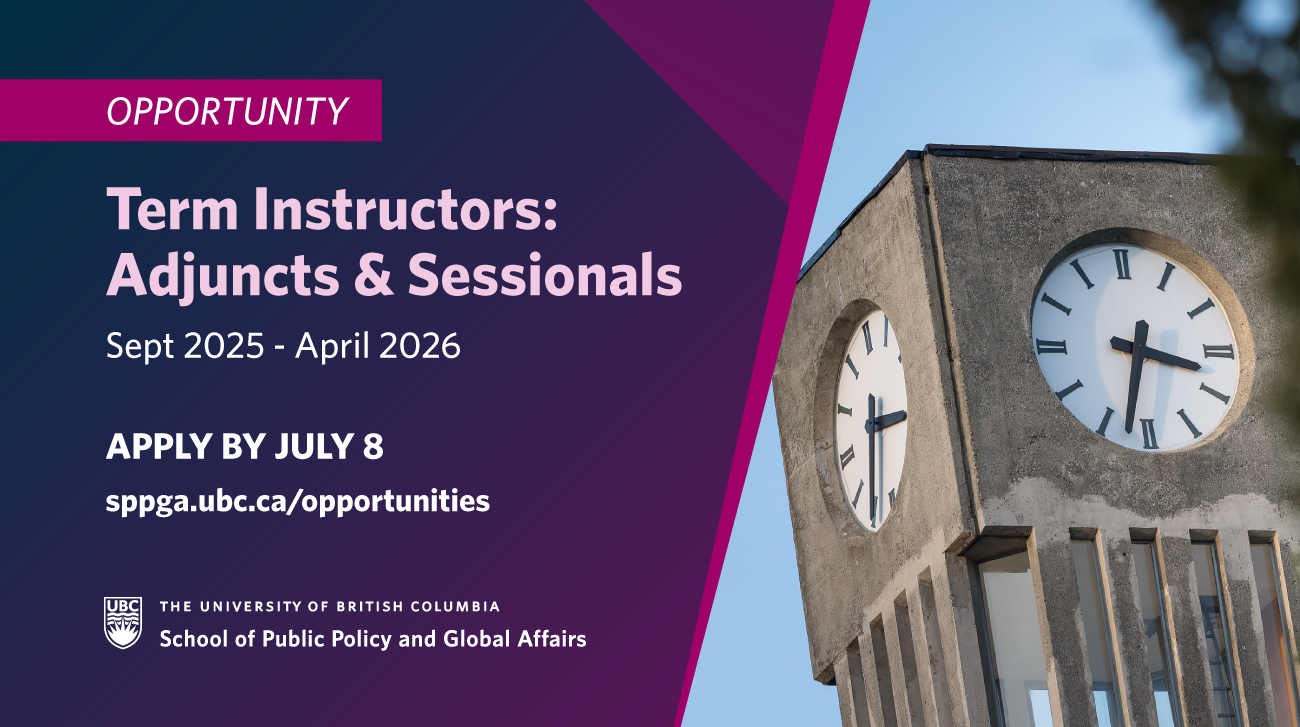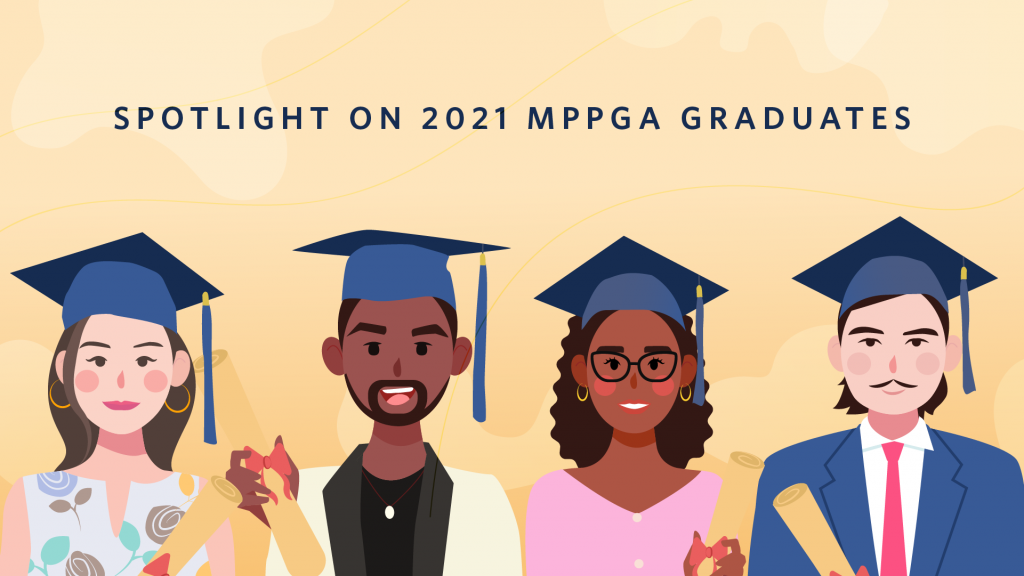

Our Master of Public Policy and Global Affairs (MPPGA) students have the drive to shape a better world, and the MPPGA program at the University of British Columbia has supported them to realize their ambitions. Many of our alumni have turned their passion for doing good into measurable social, economic, and environmental impact in policy careers around the world.
We are thrilled to celebrate our MPPGA Class of 2021 and feature four recent graduates, Muhialdin Bakini, Paige Rumelt, Sumaiyyah Adam, and Boyd Hayes. Learn about their most memorable experiences in the 20-month MPPGA program, what issues they are most passionate about, and their career aspirations now that they have achieved their degree. They have already influenced policy change within their Global Policy Projects working with governments, NGOs, and community-based agencies around the world and gained real-world skills in paid work terms. Faculty and staff at the School of Public Policy and Global Affairs look forward to seeing what they do next!
What is your most memorable moment in the MPPGA program?
One of the most memorable moments in the MPPGA program was the opportunity to work with a team of three students on a global public policy issue, which focused on understanding civil society groups in Iraq, and women’s rights groups in particular. Restricted from overseas travel due to the COVID-19 pandemic, my team drew on its creative power, utilizing the Zoom platform to engage with interview participants from diverse personal and professional backgrounds.
My team put together an excellent report, enabling our client, the Dallaire Centre of Excellence for Peace and Security, on how best to advise the Canadian Armed Forces (CAF) on strengthening its implementation of the UNSCR 1325 on Women, Peace, and Security. The client utilized the findings from our report weeks before we had officially submitted it.
I also had a unique opportunity to work with Kerry Ross, SPPGA Co-op and Career Services Manager, on my resume, cover letter, and interview preparations. Kerry’s solid grasp of the hiring procedures helped me land my dream job on the first job interview!
What local and/or global issues are you most passionate about? How has the MPPGA program helped you gain the skills and knowledge to address these issues?
Coming into the MPPGA, I was predominantly occupied with globalization, inequality, technological disruptions and their combined impacts on the labour force. However, in the second year, my interest shifted towards global energy poverty, energy justice, decarbonization, and equitable sustainable resource allocation. I took courses with professors George Hoberg and Philippe Le Billon, which gave me a robust understanding of these issues.
Locally, however, I became interested in Equity, Diversity, and Inclusion (EDI). My passion for EDI issues grew stronger when Professor Kristen Hopewell hired me as a research assistant. As a research assistant, my role was to enrich the PPGA 591J course on Global Economic Policy with diverse contributions by scholars from racialized and other minority groups.
This experience brought me a renewed sense of appreciation for the importance of employing diversity as a framework for promoting inclusion and equitable sharing of both classroom spaces and the university campus. More importantly, it revealed that having a framework inviting contributions from minority scholars can help mitigate the imposter syndrome experienced by racialized and other minority students.
What are your career aspirations and next steps post-graduation?
I am now employed as Diversity Education and Resources Supervisor, also known as the (DEAR) program, with Abbotsford’s Archway Community Services (ACS), which provide education, resources, and support on diversity, anti-racism, hate and bigotry. In addition to supervising and supporting the DEAR team, in my role as a supervisor I develop programs and ensure their effective implementation in meeting the DEAR program’s goals and objectives.
Working with Archway Community Services provides me with the opportunity to engage diverse clients in a multi-stakeholder framework. Working with a diverse range of clients within and outside the City of Abbotsford such as businesses, schools and service providers allows me the opportunity to utilize skills I developed in the MPPGA program.
I envision myself directly involved in designing policies and programs for the Diversity Education and Resources department and instituting policies for multiple departments with the ACS in the future.
What is your most memorable moment in the MPPGA program?
The most memorable experience over the past two years of the MPPGA Program was the Power Game, a simulation from Andrea Reimer’s Power and Practice course. The Power Game, which simulates a Vancouver City Council meeting, teaches students about the different types of power and how they can be leveraged in real-world settings. I played the Power Game at the height of the COVID-19 pandemic, which meant that my term as ‘Mayor of Vancouver’, and all of the political scandals that surfaced during the Power Game, happened from my living room. Over the course of the Power Game, I learned to act according to my purpose, to stay resilient in the face of smear campaigns, and to be assertive. The game was a reminder, however, that the policy and political worlds are unpredictable, and strategies will inevitably change.
What local and/or global issues are you most passionate about? How has the MPPGA program helped you gain the skills and knowledge to address these issues?
I am passionate about menstrual hygiene management and ensuring that all people who menstruate can access menstrual products. I believe strongly that menstrual products are an essential good that should be free and accessible to all people who menstruate. There are, however, significant discrepancies in access to products among people who menstruate.
This fall, I worked part-time as a Research Assistant for the United Way of the Lower Mainland. In this role, I analyzed the results of two public-facing surveys that collected data regarding access to menstrual hygiene products across British Columbia. After cleaning and analyzing the data, my colleagues and I contributed to a report to the provincial government that described the barriers that people who menstruate face when accessing menstrual products.
As a Research Assistant, I used the skills that I have developed over the course of the MPPGA Program to analyze the survey data and identify key findings. The MPPGA Program’s emphasis on data-driven policy guided my analysis and strengthened the final report. In this role, I also leveraged the skills I developed during the Global Policy Project to communicate with stakeholders, schedule Zoom meetings, and work closely with a project team to meet deadlines.
What are your career aspirations and next steps post-graduation?
I am eager to work on issues relating to public and global health policy. As a graduate of the MPPGA Program, I am ready to take the skills that I have developed over the past two years and analyze health policy, contribute to data-driven policy development, and ensure that everyone has access to healthcare that meets their particular needs.
What is your most memorable moment in the MPPGA program?
My most memorable moment in the MPPGA program was joining and collaborating on the Race, Equity, Diversity, and Inclusion (REDI) initiative. When entering the second year of the program, many of us were experiencing the pandemic in different ways. However, amidst that, there was a growing collective that wanted to discuss and combat injustices that disproportionately affect people of color both in and out of our institutions.
The REDI initiative empowered me to speak up about the need for advocacy and inclusion for all students, staff, and faculty members within the School of Public Policy and Global Affairs. We centered our work on elevating marginalized voices and initiating opportunities that can foster a long-term environment that promotes equality, diversity, and inclusion for people from all walks of life.
The relationships fostered throughout this initiative demonstrated that you do not have to be the same to support each other in your drive for change. REDI members actively attended meetings, where they unconditionally came to listen, support, and engage in discussions that brought concerns conveyed by students to the forefront. My experience demonstrated the necessity of consultation with individuals, listening to their concerns, and targeting solutions that directly address the issues they face.
What local and/or global issues are you most passionate about? How has the MPPGA program helped you gain the skills and knowledge to address these issues?
I am most passionate about changing the way systems affect people disproportionately. More specifically, I came into the MPPGA program to engage in topics about development in underdeveloped countries and to learn more about the process of establishing development opportunities in countries in Africa and the Middle East. As an African Canadian who has seen firsthand what it means to live in an underdeveloped country, I consider development projects that focus on widespread education and healthcare as valuable ways to alleviate economic and social burdens that systematically affect generations.
After taking a course on Transitional Justice, with Professor Erin Baines, I thought deeply about newer ways to work towards change and development. A lot of the topics we engaged in helped me contextualize the people we seek to learn about and support. Throughout the course we were challenged: I remember a guest lecturer named Juliane Okot Bitek who made me think about the power of identity and how there are multiple ways of learning, which can include learning in a different language. We were encouraged to avoid thinking in a uniform way, and to embrace the diversity of knowledge instead. I am thankful for the cross-cultural understanding I gained each week from topics like reparations and reconciliation, and for my classmates who shared their personal experiences candidly.
What are your career aspirations and next steps post-graduation?
My career aspiration is to be in an environment that is inclusive and diverse. I want to learn from different knowledge holders, while also utilizing my experiences to make a difference. I see myself working in communities that seek support. I grew up in a low-income neighborhood in Toronto, and watched my mom be a community activist. Now that I have my Master's, I believe I am more equipped to address some of the more entrenched challenges that burden low-income communities. Overall, I see myself working in social justice fields and development projects that alleviate issues surrounding inequality, poverty, and injustice. As long as I'm trying to make a positive impact, I believe I'll be able to put my skills to good use.
What is your most memorable moment in the MPPGA program?
I offer two which encompass what I think were the two most important elements of my time in the MPPGA program.
The first moment was in my second year, in Sara Shneiderman’s Development Discourses class. The course itself was brilliant, and the readings and discussions were exceptionally fruitful. But the moment that stands out in memory was when we read Tess Lea’s Wild Policy. The week we covered that book felt like a culmination and confluence of so many threads that I had been pulling on since the beginning of the program. I had a moment where I felt like I was finally pulling back the curtain on one of the precious lessons I came here to learn: how to ask the right questions of the right people and institutions to find the true source of bad policy and the potential catalyst of good policy. The book itself offers a specific perspective, but it is the way the professor and my classmates helped me situate the book amongst our greater conversation that meant so much to me. Learning moments like that are gifts to cherish.
The other memory brings a smile to my face still, and it is of a potluck dinner with new friends in a new home. One of the things I knew I wanted from a graduate program was to be around brilliant people from many different backgrounds who had similar goals and visions to my own. I found that and more here in Vancouver. I was so lucky to become part of a tight-knit group of friends very quickly, representing so many nationalities, skin tones, religions, languages and viewpoints. Those people are responsible not only for much of my growth and development as a person, but also for my keeping me safe and sane when the world became scary and when deadlines piled up. Their friendship is one of my greatest takeaways from this program, and of the many memories we have together, I love to remember our first potluck, where we made a meal together and sat on the floor in my apartment to share it because I didn’t have enough chairs. You can’t buy memories like that.
What local and/or global issues are you most passionate about? How has the MPPGA program helped you gain the skills and knowledge to address these issues?
I am particularly interested in development and migration through a gender-focused and Afrocentric lens. Much of my work prior to this program dealt with these issues, and I was lucky throughout my time in the MPPGA program to learn more and more about them in essentially every course. While each course contributed to my skills and knowledge, I want to specifically point out George Hoberg’s Policy Process course, Sara Shneiderman’s Development Discourse, and Erin Baines’ Women, Peace and Security course. These courses helped me hone my abilities to scrutinize history, to question every assumption, to centre people and communities in my policy work, and to challenge entrenched power structures.
What are your career aspirations and next steps post-graduation?
Career aspirations is still a tricky conversation for me. Not that I’m not sure what I want to do, but more so I feel like this degree has opened so many doors for me and I want to walk through all of them. For now, my immediate future remains in Vancouver while my partner finishes her studies. In that time, there is plenty of good work to do around here (and very many openings begging for applications).
I am particularly interested in community-focused work. Vancouver has so much civic energy and plenty of local governance and bureaucracy to get involved with, and I hope to dig into some of that. Beyond that, I always hoped to return to South Africa to tackle issues of profound gender inequality and gender-based violence that keep me up at night. I’m still not sure how that will materialize, but I can say that the MPPGA program helped me better determine the kinds of institutions I want to involve myself with and which roles I want to fill in my work. As long as I can use my skills as a researcher and communicator to hold open doors for those in our communities who are working to make the world more just, equitable and compassionate, I know I will be happy.
